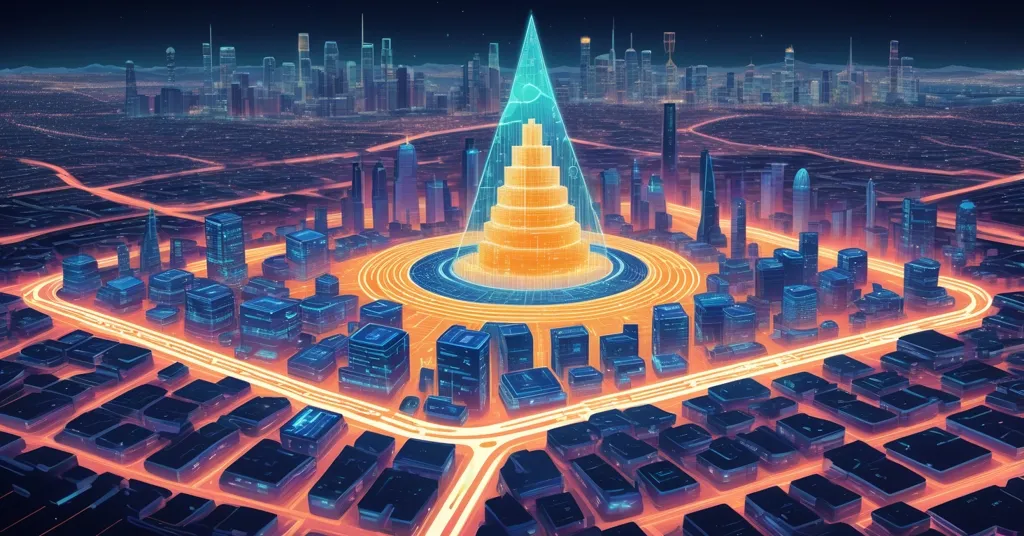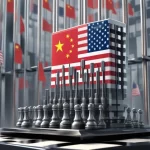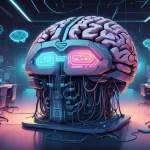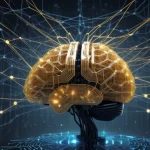Jensen Huang: Nvidia’s Trump-Era Power in AI, Trade, and Crypto Mining Impact

Nvidia’s Jensen Huang: Trump’s Silicon Valley Power Player in AI, Trade, and Cryptocurrency Mining
Jensen Huang, CEO of Nvidia, has surged to the forefront of tech influence within the Trump administration, outpacing heavyweights like Elon Musk and Tim Cook. Armed with Nvidia’s dominance in AI chips, Huang is reshaping U.S. trade policies and securing global deals, with ripples that could impact the cryptocurrency and blockchain worlds.
- Huang’s Ascent: Nvidia’s CEO eclipses other tech leaders in political clout with direct access to Trump.
- Trade Policy Reversal: Ban on H20 AI chip sales to China lifted after Huang’s lobbying efforts.
- Crypto Connection: Nvidia’s legacy in Bitcoin mining and potential AI-blockchain synergies hold promise.
- Policy Risks: Geopolitical tensions could undermine Huang’s current gains.
Huang’s Geopolitical Gambit: Trump’s New Tech Ally
In a dramatic reshuffling of Silicon Valley’s power dynamics, Jensen Huang has emerged as a key player in rewriting U.S. tech rules under the Trump administration. While Apple’s Tim Cook stumbles amid trade disputes and Elon Musk reels from a public fallout with the president, Huang has leveraged Nvidia’s position as the leader in artificial intelligence (AI) hardware to gain unparalleled access to decision-makers in Washington, D.C. This isn’t just a corporate win; it’s a stark reminder of how critical technologies like AI are becoming tools of international strategy, with potential lessons for the decentralized tech movement we champion.
Nvidia’s rise is underscored by its recent milestone of surpassing Apple as the most valuable U.S. company, a shift fueled by soaring demand for AI chips that power everything from machine learning to data centers. Apple, once a darling in political circles, now faces Trump’s ire over its slow exit from Chinese manufacturing and production shifts to India. The president didn’t hold back on his frustration with Apple’s leadership.
“I had a little problem with Tim Cook,” Trump stated, highlighting tensions over Apple’s trade decisions.
Musk, who many expected to be Trump’s go-to tech advisor, has also seen his influence wane after a public spat, leaving a vacuum that Huang has swiftly filled. As Dan Ives, a senior analyst at Wedbush with a focus on tech investments, put it, Huang’s clout, detailed in reports of Nvidia’s alliance with Trump in Silicon Valley, is a game-changer.
“It was a historic win for Nvidia and Jensen … and I think it shows the increasing political influence that Huang’s having within the Trump administration,” Ives remarked.
Huang’s ability to navigate this high-stakes environment isn’t just about charm; it’s rooted in Nvidia’s indispensable role in the AI revolution—a sector where relevance translates directly to power. But could his push for tech autonomy echo the same battles crypto faces against regulatory overreach? That’s a question worth pondering as we dig deeper.
H20 Chip Reversal: A Trade Policy Coup
Central to Huang’s influence is a major policy win regarding Nvidia’s H20 AI chips, specialized semiconductors designed for the Chinese market to comply with U.S. export restrictions on cutting-edge tech. These chips are critical for training AI models—think complex algorithms that power everything from chatbots to autonomous systems—making them a hot commodity despite not being Nvidia’s most advanced offerings. Initially banned from sale due to national security concerns, the restriction led to a brutal $4.5 billion writedown on unsold inventory for Nvidia earlier this year. Yet, after direct discussions with Trump, Huang secured a reversal of the ban, allowing sales to resume and potentially recovering billions in lost revenue, as explored in updates on Nvidia’s H20 AI chip ban reversal.
Huang’s argument was blunt: blocking U.S. tech exports doesn’t weaken China—it pushes them to build their own alternatives, potentially eroding American dominance. This perspective, shared by Trump adviser David Sacks, swayed policymakers wary of losing technological leverage in a global tech arms race, with further insights available in discussions on U.S.-China AI chip export policy changes. Paul Triolo, head of China and tech policy at DGA-Albright Stonebridge Group, emphasized the strategic nuance behind this decision.
“Sacks and Huang both argue that limiting exports of U.S. technology such as select and non-cutting-edge GPUs to China risks pushing Chinese companies to use domestic alternatives,” Triolo explained.
Huang’s vision goes further. He’s adamant that American technology should underpin global AI infrastructure, a stance that mirrors broader U.S. goals while hinting at parallels with crypto’s push for independent systems free from centralized meddling.
“Every civil AI model should run on the U.S. technology stack,” Huang asserted.
Yet, let’s not paint this as a flawless victory. The decision to lift the H20 ban has sparked debate among China hawks in Washington who see any tech export as a security risk. Plus, there’s ambiguity on whether Nvidia will restart production or just offload existing stock, which could limit the financial upside. And with ongoing semiconductor investigations and potential tariffs looming, policy whiplash remains a real threat. This isn’t a done deal—it’s a high-wire act with billions at stake.
Global Moves: UAE Deal and Beyond
Huang’s influence isn’t limited to outsmarting China on trade rules; he’s planting Nvidia’s flag worldwide. During a trip with Trump to the United Arab Emirates earlier this year, Huang brokered a staggering deal to supply hundreds of thousands of advanced GPUs to the Gulf nation, with projections of up to half a million chips annually through 2027, as detailed in reports on the Nvidia UAE GPU deal. This isn’t just a sales win—it’s a geopolitical statement, effectively sidelining Chinese competitor Huawei and reinforcing U.S. tech dominance in a strategic region.
Ives captured the broader implications of Huang’s expanding role, tying it to Nvidia’s leadership in AI innovation.
“Huang has become a global figure and taken on a new role politically due to his success in the AI revolution,” Ives noted.
What’s intriguing for our audience is the UAE’s growing interest in blockchain and cryptocurrency adoption, particularly in hubs like Dubai, which has positioned itself as a leader in decentralized tech initiatives. Could Nvidia’s foothold in the region indirectly support blockchain infrastructure or crypto mining operations? While speculative, it’s a connection worth watching, especially as AI and decentralized systems increasingly intersect in unexpected ways.
Nvidia’s Crypto Roots: From Mining to AI Potential
For those of us immersed in the crypto space, Nvidia is no stranger. During the Bitcoin and Ethereum mining booms of 2017-2018 and 2020-2021, Nvidia GPUs—especially the RTX series—were the workhorses for miners worldwide. These graphics processing units powered the proof-of-work consensus mechanism, a process where miners use raw computational power to solve complex math problems, validating transactions and securing decentralized networks like Bitcoin. At peak demand, Nvidia hardware was so coveted that shortages frustrated gamers as miners snapped up every card available, a topic often discussed in forums like Nvidia’s role in cryptocurrency mining.
Recognizing this, Nvidia launched its CMP (Crypto Mining Processor) line to segregate mining from gaming demand, a move that cemented their footprint in crypto’s infrastructure. While Bitcoin remains the gold standard of decentralized money—a core belief for us Bitcoin maximalists—Ethereum’s pre-merge reliance on GPU mining also showcased Nvidia’s versatility in supporting altcoin ecosystems that fill niches Bitcoin doesn’t directly address, with broader impacts explored on platforms like Nvidia’s influence in AI and crypto mining.
Fast forward to today, and the question looms: can Nvidia’s AI prowess intersect with blockchain innovation? There’s potential for AI-driven decentralized applications (dApps) to leverage Nvidia’s chips for enhanced processing, or for AI to optimize consensus protocols, tackling scalability issues that plague many blockchains. Imagine AI refining transaction validation or bolstering privacy-focused crypto projects—ideas that resonate with our push for effective accelerationism and disrupting outdated systems, with further analysis available on AI chips and blockchain potential.
But let’s pump the brakes on the hype train. Nvidia’s primary focus is the broader AI market, not niche crypto needs. While synergies sound sexy, they’re largely unproven, and we’re not here to peddle pipe dreams. The crypto community shouldn’t bank on Nvidia pivoting hard into blockchain without concrete evidence. Still, Huang’s fight for tech freedom against export bans does echo crypto’s own battle against centralized control—a philosophical overlap that’s hard to ignore.
Risks on the Horizon: Can Huang’s Clout Last?
Before we crown Huang the untouchable tech czar, let’s face the gritty reality. His current sway in Washington isn’t set in stone. U.S. policy on chip exports has a history of flip-flopping—look at the Huawei bans that shifted overnight under political pressure. Reva Goujon of Rhodium Group offers a sobering take, warning that Nvidia’s journey from target of chip controls to top influencer might be a temporary blip, a concern echoed in analyses of Nvidia’s role in Trump administration tech policy.
Adding to the uncertainty, U.S. Commerce Secretary Howard Lutnick has stressed keeping America “one step ahead” of China technologically, even while supporting strategic sales to maintain reliance on U.S. tech. Huang’s ambitions to sell more advanced chips beyond the H20 could clash with this cautious stance. And if China hawks gain traction, or if broader tariffs hit the semiconductor industry, Nvidia could find itself back in the crosshairs.
Playing devil’s advocate, is Huang’s “tech freedom” rhetoric genuinely aligned with crypto’s fight against control, or just slick corporate spin? On one hand, his push against export bans mirrors our resistance to overbearing regulation, championing open access to innovation. On the other, let’s not kid ourselves—Nvidia’s motives are profit-driven, not ideological. While there’s overlap with decentralization’s ethos, Huang isn’t waving the Bitcoin flag; he’s securing Nvidia’s bottom line. It’s a pragmatic dance, one that crypto leaders navigating regulatory minefields can learn from, even if the end goals differ.
Key Takeaways and Questions
- What sparked Jensen Huang’s rise in the Trump administration?
Huang’s clout stems from Nvidia’s AI chip dominance, direct lobbying with Trump, and strategic wins like reversing export bans, making him a central figure in tech policy. - Why was the H20 chip ban to China lifted?
Huang argued that bans push China toward self-reliance in tech, risking U.S. leverage; the reversal could recover billions for Nvidia but fuels security debates. - How does Nvidia stack up against Apple right now?
Nvidia has overtaken Apple as the top-valued U.S. company, driven by AI innovation, while Apple faces political heat over trade and manufacturing moves. - Can Nvidia’s AI tech boost blockchain and crypto?
Potentially—Nvidia’s GPU legacy in Bitcoin mining and AI’s capacity for dApps or scalability solutions offer promise, though their focus remains on broader AI markets, not crypto niches. - Is Huang’s influence sustainable amid U.S.-China tensions?
It’s shaky; policy shifts, security concerns, and historical trade volatility could erode his gains, showing tech giants aren’t immune to geopolitical storms.
Lessons for the Crypto Revolution
Stepping back, Huang’s high-stakes maneuvering offers a masterclass for the crypto space. His knack for balancing corporate goals with national agendas parallels the tightrope Bitcoin and blockchain projects walk in hostile regulatory environments. Whether it’s securing the UAE deal or pushing against trade bans, there’s a clear echo of how crypto must advocate for decentralization while dodging heavy-handed crackdowns. Sure, Huang’s no martyr for freedom—he’s chasing profits, just as some crypto ventures prioritize gains over ideology. But his success in shaking up entrenched policies should fire up those of us rooting for Bitcoin maximalism and rapid, disruptive progress.
If Huang can bend Washington to Nvidia’s will, imagine what Bitcoin’s decentralized army could achieve against financial gatekeepers. From Nvidia’s mining hardware legacy to speculative AI-blockchain bridges, this saga underscores a core truth: tech redefines power. As U.S. policies twist and turn, don’t be shocked if Nvidia’s next play somehow loops back to the financial revolution we’re fighting for. Game on—disruption is the only constant, and we’re all in the arena.



